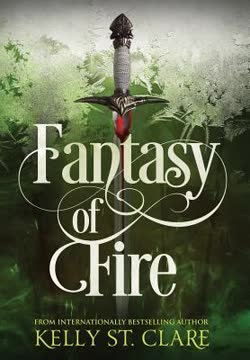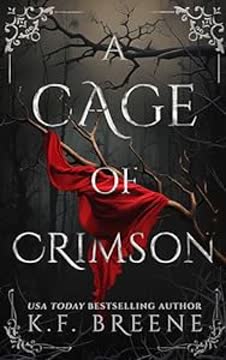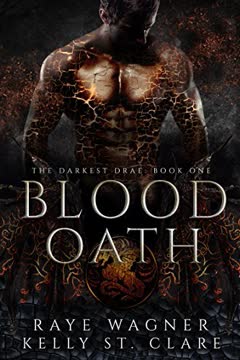Plot Summary
The Valet's Masquerade
Sin, a notorious pit fighter from Glacium, now serves as valet to Tatum Olina, ruler of Osolis. His reputation as a womanizer and his irreverent humor mask deeper wounds. Olina, sharp and haunted by recent war, sees through his act but tolerates his presence, suspecting ulterior motives. Their banter is laced with tension and mutual respect, but Sin's true reasons for staying in Osolis remain hidden. He's not there for pleasure or politics, but for something more personal, a secret that even Olina can't guess. The palace is a place of masks, and Sin's is the most elaborate of all, concealing pain, loyalty, and a longing for belonging.
Outcasts on the Bench
Olorna, a former villager and now a court outcast, finds solace on a secluded bench beneath the ceremonial kaur tree. She observes the court from afar, longing for acceptance but fearing ridicule. Sin, lost in thought, accidentally sits beside her, drawing unwanted attention. Their interaction is awkward—Olorna is mortified by the court's stares, while Sin is amused by her discomfort and lack of interest in him. This unlikely meeting plants the seed of a strange camaraderie, as both are outsiders in their own ways. The bench becomes a symbol of their shared isolation and the beginning of a tentative connection.
Childhood Scars Revealed
Haunted by nightmares, Sin relives the moment his mother abandoned him and his father's subsequent decline. The memory is raw: a child's confusion, a father's tears, and a home shattered by violence and loss. Sin's bravado crumbles in private, revealing a man shaped by abandonment and betrayal. His relationships with women are colored by this trauma—he trusts no one, seeking solace in fleeting pleasures and avoiding emotional intimacy. The pain of his past drives his actions, even as he tries to bury it beneath layers of charm and indifference.
Unlikely Friendship Forms
Despite their differences, Sin and Olorna begin to form a fragile friendship. Their conversations are laced with sarcasm and mutual misunderstanding, but also with glimpses of vulnerability. Olorna, struggling with her new status and the court's cruelty, finds Sin's irreverence oddly comforting. Sin, intrigued by a woman immune to his charms, is drawn to her honesty and resilience. Their bond deepens as they share secrets and challenge each other's assumptions, each finding in the other a mirror of their own loneliness.
Secrets and Social Climbing
Olorna's mother, Afranca, has risen from palace cook to Satum, but the court's acceptance is shallow. To secure their place, Olorna agrees to marry Satum Namas, a powerful and sinister courtier. The decision is pragmatic, not romantic—Olorna hopes the alliance will protect her mother and herself from further scorn. Yet the cost is high: Namas is manipulative and dangerous, and Olorna's sense of self erodes under the weight of her sacrifice. The court's hierarchy is unforgiving, and Olorna's choice is both an act of love and a surrender to fear.
The Orphan's Redemption
In the aftermath of war, Sin rescues a starving infant, Banya, from the ruins of the village. His act is selfless, contradicting his reputation. He visits the orphanage regularly, forming a quiet bond with the child and the matron. Olorna witnesses this side of Sin and is moved by his capacity for kindness. The episode reveals the depth of Sin's empathy, hinting at the man beneath the mask. For Olorna, it is a turning point—she begins to see Sin not as a scoundrel, but as someone capable of great good.
Bargains and Betrayals
As the tribunal looms over Namas for the beating of a village boy, Olorna realizes her betrothal is a ploy to secure her mother's vote and Namas's own power. When she tries to break off the engagement, Namas threatens her and her mother with violence, revealing his true nature. Olorna is trapped, her agency stripped away by fear and manipulation. Sin, witnessing her distress, intervenes, but his actions only complicate matters, putting both himself and Olorna in greater danger. The court's politics are a web of deceit, and Olorna is ensnared at its center.
The Court's Cruelty
The court's elite, led by the spiteful Orita, use Olorna's association with Sin to blackmail her, threatening to expose her supposed indiscretions. Olorna, already isolated, is pushed to the brink. Yet she finds a spark of defiance, refusing to be cowed by their threats. The episode underscores the toxic environment of the palace, where power is wielded through gossip and intimidation. Olorna's resilience is tested, but she begins to reclaim her voice, inspired in part by Sin's irreverent courage.
The Tribunal's Shadow
Sin, desperate to save Olorna, appeals to Tatum Olandon, Olina's brother, exposing Namas's abuses and the court's complicity. Olandon is unmoved, bound by tradition and wary of Sin's reputation. The tribunal is stacked in Namas's favor, and Olorna's fate seems sealed. Sin's frustration boils over, but he is powerless against the machinery of Solati justice. The encounter is a sobering reminder of the limits of individual action in the face of entrenched power.
Breaking the Betrothal
In a moment of crisis, Sin confesses his care for Olorna, and they share a passionate, forbidden kiss. The act is both a declaration and a catalyst, forcing Olorna to confront her true feelings. Yet the consequences are immediate—Namas's threats escalate, and Sin is forced to flee Osolis to protect them both. Their connection, once a source of solace, now becomes a source of peril. Both are left to grapple with longing, regret, and the fear of what comes next.
Flight and Fury
Sin escapes to Glacium, seeking refuge in the fighting pits and the company of old friends. Yet he finds no peace—his anger and heartbreak spill over in violence, and he is haunted by memories of Olorna. A drunken confrontation with his friend Warren leads to the revelation of his mother's survival and the truth about his father's abuse. Sin's identity is shattered, forcing him to confront the lies he has lived by and the pain he has inflicted on others.
The Mother's Truth
Sin seeks out his mother, Beatrice, and learns the full story of her departure and his father's cruelty. The meeting is raw and cathartic, breaking the cycle of blame and self-destruction that has defined Sin's life. He realizes that his mistrust of women and his reckless behavior are rooted in childhood wounds. The encounter gives him the clarity and strength to pursue what he truly wants—a life with Olorna, built on honesty and love.
The Queen's Decree
Back in Glacium, Sin is summoned by Queen Olina and King Jovan, who manipulate him into action by pretending to forbid his return to Osolis. With the help of friends, Sin escapes, determined to save Olorna from a loveless, dangerous marriage. Olina's calculated push gives Sin the opportunity to prove himself—not just as a fighter, but as a man capable of loyalty and sacrifice. The stage is set for a final confrontation.
The Master of Ceremonies
Arriving in Osolis, Sin proposes the creation of the Interworld Games—a grand competition to unite the three worlds and foster peace. He offers his life savings and his skills as Master of Ceremonies in exchange for Olorna's freedom. Olandon is skeptical, but Sin's passion and sincerity sway him. The deal is struck, but the outcome remains uncertain. Sin's transformation from rogue to leader is complete, and he is finally taken seriously by those in power.
The Wedding That Wasn't
On the day of Olorna's binding ceremony to Namas, Sin arrives in dramatic fashion, captivating the court and exposing Namas's abuses. With the help of Afranca and the support of the Tatum, the wedding is halted. Olorna, emboldened by Sin's love and her mother's strength, finally breaks free from Namas's grasp. The court's facade crumbles, and justice is served—not by tradition, but by courage and solidarity. This climactic disruption serves as the story's turning point.
The Pan and the Promise
Afranca, wielding her trusty pan, delivers poetic justice to Namas, protecting her daughter and reclaiming her own dignity. The moment is both triumphant and tender, as mother and daughter reconcile and affirm their bond. Sin, humbled and grateful, steps aside to let Afranca take the lead, recognizing the power of maternal love and the importance of letting others fight their own battles.
Confessions at the Bench
Alone at their bench beneath the kaur tree, Sin and Olorna finally confess their love. They share their fears, regrets, and hopes for the future, vowing to protect and cherish each other. Sin's vulnerability is laid bare, and Olorna's acceptance heals old wounds. Their union is not just romantic, but redemptive—a testament to the power of honesty, forgiveness, and second chances.
A New Beginning
Sin and Olorna, now betrothed, look forward to a life built on mutual respect and love. Sin's past no longer defines him; Olorna's courage has earned her a place in the court and in Sin's heart. Together, they face the challenges of a changing world, determined to create a legacy of unity and compassion. Their story is one of transformation—of pain turned to purpose, and of two outsiders finding home in each other.
Characters
Sin (Ethyn)
Sin is a complex figure—outwardly a brash, womanizing pit fighter, inwardly a man scarred by childhood abandonment and abuse. His humor and bravado are shields against vulnerability, but beneath them lies a deep longing for connection and acceptance. Sin's journey is one of self-discovery: he confronts the lies of his past, reconciles with his mother, and learns to trust and love. His relationship with Olorna is transformative, challenging his cynicism and awakening his capacity for loyalty and sacrifice. Sin's arc is a testament to the possibility of change, even for those most resistant to it.
Olorna
Olorna is a former villager thrust into the unforgiving world of the Solati court. Timid and self-effacing, she is nonetheless fiercely loyal to her mother and determined to protect her family. Olorna's journey is one of empowerment: she navigates the court's cruelty, endures manipulation and threats, and ultimately finds the courage to assert her own desires. Her friendship and eventual romance with Sin are catalysts for growth, teaching her to value herself and to fight for happiness. Olorna's strength lies in her quiet defiance and her capacity for forgiveness.
Afranca
Afranca, Olorna's mother, rises from palace cook to Satum, but remains an outsider in the court. Her love for Olorna is unwavering, and she endures humiliation and hardship to secure a better future for her daughter. Afranca's wisdom and resilience are anchors for Olorna, and her decisive action against Namas is a powerful assertion of agency. She embodies the theme of maternal sacrifice, but also the necessity of self-respect and standing up to injustice.
Namas
Satum Namas is the embodiment of courtly corruption—calculating, abusive, and driven by self-interest. He exploits Olorna's vulnerability and Afranca's ambition, using threats and violence to maintain control. Namas's downfall is precipitated by his own hubris and the collective resistance of those he sought to dominate. He serves as a foil to Sin, highlighting the difference between power wielded for self-gain and power used to protect others.
Tatum Olina
Olina, the former Tatum of Osolis, is a figure of intelligence and compassion. She sees through Sin's facade and orchestrates events to push him toward growth. Her decision to abdicate and her behind-the-scenes manipulation of Sin's return to Osolis are acts of tough love, designed to empower both Sin and Olorna. Olina represents the possibility of benevolent leadership and the importance of strategic intervention.
Tatum Olandon
Olandon, Olina's brother and successor, is a cautious and sometimes cold ruler. He is bound by the expectations of his office but is ultimately swayed by Sin's sincerity and Olorna's plight. Olandon's willingness to embrace the Interworld Games and to break with tradition signals a shift toward a more just and inclusive society.
Orita
Orita is the quintessential court "crow"—gossipy, manipulative, and jealous. She embodies the toxic culture of the palace, using social power to exclude and torment outsiders like Olorna. Her interactions with Olorna highlight the challenges of social mobility and the cruelty of those who guard their privilege.
Warren (Wrath)
Warren is Sin's oldest friend, a fellow pit fighter who provides both comic relief and hard truths. He challenges Sin to confront his past and his feelings for Olorna, serving as a catalyst for Sin's transformation. Warren's loyalty and honesty are invaluable, grounding Sin when he is most lost.
Beatrice (Bess)
Beatrice's reunion with Sin is a pivotal moment, forcing him to confront the reality of his childhood and the lies he has believed. Her story of survival and resilience offers Sin a new perspective on love and forgiveness. Beatrice's presence is a reminder that healing is possible, even after years of pain.
King Jovan
Jovan, though a secondary character, represents the stability and strength of Glacium. His relationship with Olina is a model of partnership and mutual respect, contrasting with the toxic dynamics elsewhere in the story. Jovan's support of Olina's schemes and his role in Sin's journey underscore the importance of allies in the pursuit of justice.
Plot Devices
Dual Outsider Narratives
The story is structured around the parallel experiences of Sin and Olorna, both outsiders in the court. Their individual struggles with belonging, identity, and self-worth mirror each other, creating a sense of symmetry and mutual recognition. This device allows for deep character development and a nuanced exploration of social hierarchies.
Mask and Revelation
Characters wear literal and figurative masks—Sin's bravado, Olorna's cultivated accent, Namas's respectability. The gradual unmasking of true selves is central to the narrative, with key moments of vulnerability driving the plot forward. The motif of the mask underscores the tension between appearance and reality.
Foreshadowing and Flashback
Sin's nightmares and flashbacks to his childhood provide context for his actions and foreshadow his eventual reckoning with the past. Olorna's memories of the village and her mother's sacrifices similarly inform her decisions. These devices deepen the emotional resonance and create suspense.
Social Satire and Irony
The court's rituals, gossip, and cruelty are depicted with biting irony, exposing the absurdity and danger of rigid social hierarchies. Sin's irreverent commentary and Olorna's observations serve as satirical lenses, critiquing the status quo and highlighting the need for change.
Climactic Disruption
The narrative builds toward the climactic disruption of Olorna's wedding, a classic device that allows for the public unmasking of villains and the triumph of true love. The scene is both cathartic and transformative, resolving multiple plot threads and setting the stage for a new order.
Symbolic Settings
The bench beneath the kaur tree is a recurring setting, symbolizing both isolation and connection. It is the site of Sin and Olorna's first meeting, their confessions, and their reconciliation. The kaur tree, used in binding ceremonies, represents endurance and unity, reinforcing the story's themes of resilience and chosen family.
Analysis
Sin by Kelly St. Clare is a deftly woven tale of transformation, resilience, and the search for belonging. At its heart, the novella explores how trauma and social exclusion shape identity, and how love—romantic, familial, and platonic—can be both a source of pain and a path to healing. Through the dual outsider narratives of Sin and Olorna, the story interrogates the masks we wear to survive and the courage required to reveal our true selves. The court's cruelty and the machinations of power serve as a backdrop for personal growth, challenging characters to defy tradition and claim agency. The climactic disruption of the wedding is not just a romantic gesture, but a radical act of self-assertion and solidarity. Ultimately, Sin is a celebration of second chances, the redemptive power of vulnerability, and the belief that even the most wounded among us can find home in the hearts of others. The novella's humor, emotional depth, and sharp social commentary make it both engaging and thought-provoking, offering readers a resonant meditation on love, loyalty, and the courage to change.
Last updated:
Review Summary
Sin is a novella in The Tainted Accords series focusing on the character Sin. Readers generally enjoyed learning more about Sin's backstory and seeing his romantic development with Olorna. Many praised the humor and character growth, though some felt the romance was underdeveloped due to the short format. There were mixed opinions on Sin's initial treatment of Olorna. Overall, fans of the series appreciated revisiting familiar characters and settings, even if they wished for a longer, more fleshed-out story.

















